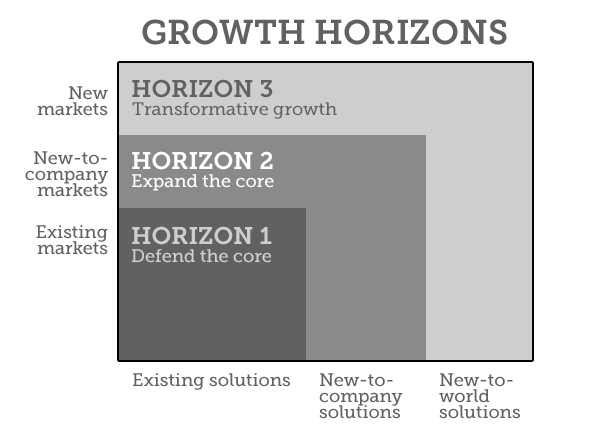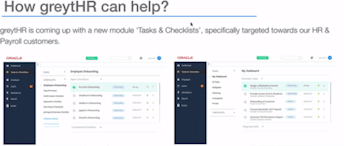Wednesday, 28 September wasn’t just another day at work after lunch. Well, ask the 20-odd founders/ CXOs, who tuned into Founders to CXOs – An Inside Journey, a grassroots-level webinar presented by Rakesh Mishra, co-founder at Excubator and senior executive coach. Co-hosted by Greytip Software, the webinar delivered great insights that left the participants asking for more.
Get a sneak peek into what Rakesh enlightened everybody on.
He praised the 20-odd participants for being among the fortunate 5%, who get to consciously or unconsciously influence peers, colleagues, friends and the industry at large.
Need for the transition
The participants were all ears as he emphasized the need for a founder to become a CXO as an organization grows and evolves:
As an organization goes through the Seed → Stabilization → Growth → Evolution phases, the need for the founders to evolve too arises.
- Founders need to realize that as the organization grows, it should be lesser about the founders and more about the organization.
- Founders need to realize that they need to move from a fluid and flexible leadership structure to a more structured leadership and responsibility matrix. Structured leadership enables your organization to have that escape velocity to move from the Stabilization phase to the Growth phase and then to the Evolution phase.
- More importantly, founders need to understand that only passion and resources won’t help them capitalize on a larger canvas of opportunities.
Types of change
He emphasized that during transition, founders need to understand different kinds of change at three levels:
- Core – These are inherent qualities, which are less likely to change as these qualities are part of a person’s inner core. Here, one should introspect and understand strengths and limitations and how these gaps can be filled by bringing external CXOs or becoming a CXO yourself.
- Personal growth – These changes relate to growing as an entrepreneur by increasing skills and competencies.
- Role design – This change is about what tasks founders performed to how they should start performing once the transition begins. As organization evolves, founders have to be focused CXOs and not Jack of all trades.
Five aspects of managing the transition
Finally, before ending the insightful webinar, he touched upon these aspects of managing the transition:
Managing business efficiently – Shift from ‘doing’ and ‘delegating’ to ‘leading’, which is one of the most difficult transitions. Letting go of all tasks and leading managers with objectivity is the name of the game. This requires recognizing self-limitations and hire folks who’ll complement your strengths and step aside for them to perform their roles well. Make sure that scaling up doesn’t affect quality and unit economics. Ensure functional processes mature as you scale up.
Building the organization – Build organizational culture, which is largely ignored but is actually an important aspect of any organization. Define value systems and develop leaders without insecurity. Hire folks who’re better leaders and better at required competencies than you’re. In a large organization, communicating vision and strategy is super important because unlike a smaller company, employees can be spread across levels, units and geographies. Create a responsibility matrix so that all employees know they’re valued and how they’re responsible for their respective tasks and goals.
Building growth horizon – Seed new products/ services/ markets across three distinct horizons:
- Defend your core competencies and products in existing markets with your existing products/ services.
- Expand your core in new-to-company markets with new-to-company products/ services.
- Transform your company by entering new markets with new-to-the-world products/ services.
Ensure you have a cross-functional innovation support system ready in the organization to scale up across these three horizons.

Managing corporate governance – When you’re transitioning from a small-scale organization to an evolving organization, to avoid nightmares, develop a policy infrastructure and manage board directives. For example, a lot of mid-size companies don’t have sexual harassment policies in place, which can turn into a nightmare as they grow into larger organizations. Having policies documented and committees in place makes sure that everybody sleeps peacefully at night.Set up and manage all compliances not just as a to-do list, but as a strategy to win employee trust and customer credibility.
Work and life discipline – Understand that the type of passion that founders have during initial stages of an organization can’t be sustained throughout the organization’s growth and evolution. To sustain such passion, you need to nurture future leadership and CXOs (either founders or others who they’ve hired) with well-deserved breaks, vacations, recognition and rewards.Keep important events and dates for family and health aside. An organization’s evolution will certainly take a toll on the founder’s or CXO’s health.
Refuel your passion, get fit and spend time with family and friends. Your off-time from the organization gives you motivation and purpose to evolve along with the organization.
This blog is a summary of the Expert Series Webinar - Founders to CXOs conducted by Rakesh Mishra. Rakesh is a Co-Founder and Director at Excubator, a startup incubator and corporate venturing advisory firm. His area of specialization are technology commercialization, business venture planning, innovation portfolio management and intellectual property management. He brings 20+ years of experience, across a wide spectrum of industries. He can be reached at: rakesh.mishra@excubator.org









